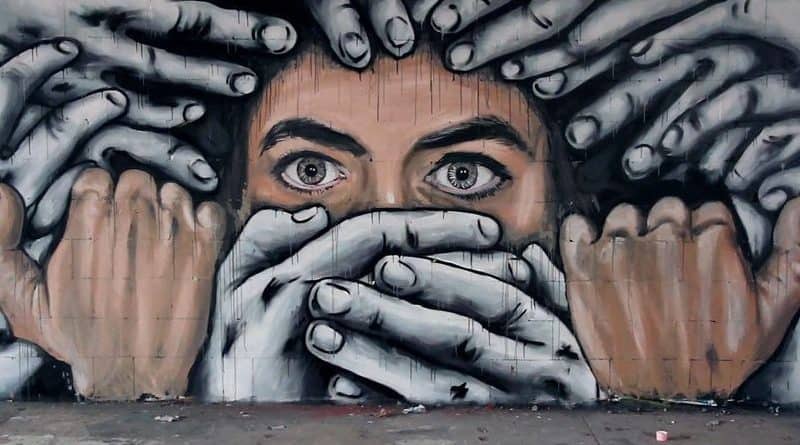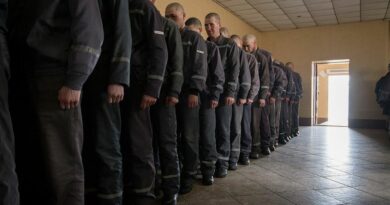Kazakhstan: human rights defenders note timid steps towards democracy
The Kazakh authorities are making maximum efforts to maintain control of the media. At the same time, the legislation and law enforcement practice of Kazakhstan in relation to the media and freedom of speech are contrary to international standards.
Slander and insult are not decriminalized, as well as the dissemination of knowingly false information. There are tight security measures to protect the reputation of senior officials of the country. The Civil Code of the Republic of Kazakhstan does not establish limitation periods for claims for the protection of honor, dignity and business reputation, and does not regulate the amount of moral damage. Such conclusions are contained in the report “The Situation with Freedom of Speech in Kazakhstan in 2019”, prepared by the International Foundation of Freedom of Speech “Adil Soz”.
The authors of the report recall that the year 2019 in Kazakhstan was marked by transit. The President of Kazakhstan, Nursultan Nazarbaev, who has been at the helm of power since 1991, resigned as president on March 19. The former president of the Senate, Kasym-Zhomart Tokaev, became the new President.
“Changes in power have caused an unprecedented upsurge of civic activism,” the report said. “In March, May, June and July, there were large-scale unauthorized peaceful rallies in the country. People demanded a fair vote, shouted the slogans “Nur-Sultan is not my city”, “Tokaev is not my president”, “People are tired” and others. The detentions were recorded in Nur-Sultan, Almaty, Karaganda, Chimkent, Semey, Aktobe, Atyrau. According to the head of the Administrative Police Committee, Maksat Baibolov, 957 people were detained only from June 9 to 11, 657 of them were placed under administrative arrest, 128 people were fined, 168 received warnings. The activation of public life intensified the polarization of the media. Most publications that have financial support from the state have avoided covering sensitive topics. Independent media reporters covering rallies and detentions were detained and assaulted. Users of social networks became more active. In general, the situation with freedom of speech can also be described as transit. The harsh repressions of the first half of the year softened in the second half of the year, which became especially noticeable by the end of the year.”
“Adil Soz” noted that in December 2018, Kazakhstan took 90th place (among 162 countries) in the “Human Freedom Index” in the world according to the American Cato Institute. At the same time, the country received the lowest points in terms of media freedom.
“According to the Internews-Kazakhstan study, the majority of media workers (59%) do not feel protected at the legislative level,” the authors of the report note. “The absolute majority shares the view that some laws or amendments to them have complicated the professional activities of media workers. In general, 60% believe that the reason for this is all the latest changes in the law on the media. According to representatives of the media market, the law on the media is regularly amended to weaken the position of journalism; legislation is gradually complicating the work of the media in Kazakhstan. This tendency has continued.”
Regarding the protection of journalists, the overall situation in 2019 was as follows: there were no killings of media workers, but there were 10 cases of attacks on journalists. As the Foundation “Adil Soz” explains, the purpose of these attacks was to intimidate and prevent the receipt and dissemination of information. However, most of the attacks occurred when journalists covered unauthorized rallies and other protests.
In addition, in 2019, 46 journalists were detained (in 2018, there were 12).
“Most of them were detained during coverage of unauthorized public actions or preventively in order to exclude the participation of these journalists in coverage of unauthorized rallies and other protests. This practice is an obvious violation of the law on the media, which states that a journalist has the right to “attend upon presentation of a journalist’s card in the area of natural disasters, at rallies and demonstrations, as well as in other forms of expression of public, group and personal interests and protest,” the report says.
It also specifies that all detentions were accompanied by a violation of procedural rules. The review provides a list of detained journalists. Among them are the editor-in-chief of the newspaper “Uralskaya nedelya” [“Ural week”], Lukpan Akhmedyarov, the reporter for Azattyk radio, Sania Toiken, and even the British journalist, Chris Rickleton, the correspondent of the Agency France Press (AFP) in Central Asia.
“Rickleton was detained on June 9 at the square “Astana”, when he wanted to interview a woman,” the study says. “They didn’t keep him for long, because after his call, the Kazakh Foreign Ministry official intervened. Chris himself appeared on social networks with a black eye and hastened to explain that he was not beaten at the police station; this is the result of being placed in a police car, he just “fell on the knee of the officer who detained him.”
Among the other violations of the rights and freedoms of the media, the Foundation “Adil Soz” names the following facts: hampering of legitimate professional activity, violation of the right to freely receive and disseminate information, blocking network resources, accusations of slander, accusations of inciting discord, accusations of disseminating knowingly false information, allegations of abuse of freedom of speech in civil law, etc.
“In the remaining authoritarian Kazakhstan, there are the first, very timid steps toward democratic change,” says the productive part of the study. “However, the situation with freedom of expression, as well as with many other human rights, as a whole remains difficult. The reform of media legislation on the principles of international standards of freedom of speech, in fact, has not yet begun. Under the sign of the fight against serious crimes, the state spends significant budgetary funds to establish total control over the information space. The expression of critical opinions and the dissemination of critical information are severely suppressed. Journalists and the media are being unjustifiably detained, assaulted and prosecuted.”
In order to advance Kazakhstan along the path of democratic reforms and really strengthen freedom of speech, the International Foundation for the Protection of Freedom of Speech “Adil Soz” recommends that the Kazakh authorities take the following measures: firstly, carry out a complete reform of the information law based on international democratic principles (revise the laws “On mass media”, “On broadcasting”, “On access to information” and others; to exclude from the Criminal and Administrative Codes norms that unreasonably limit the right of citizens to freely receive and disseminate information and express opinions; to exclude from the Code of the Republic of Kazakhstan on administrative offenses the norms that impede the development of the media sphere); secondly, to bring law enforcement practice concerning abuse of freedom of speech in accordance with international instruments ratified by Kazakhstan; thirdly, to conduct a wide explanatory work among law enforcement officials, journalists and users of social networks about the balance of rights and restrictions on freedom of expression.




